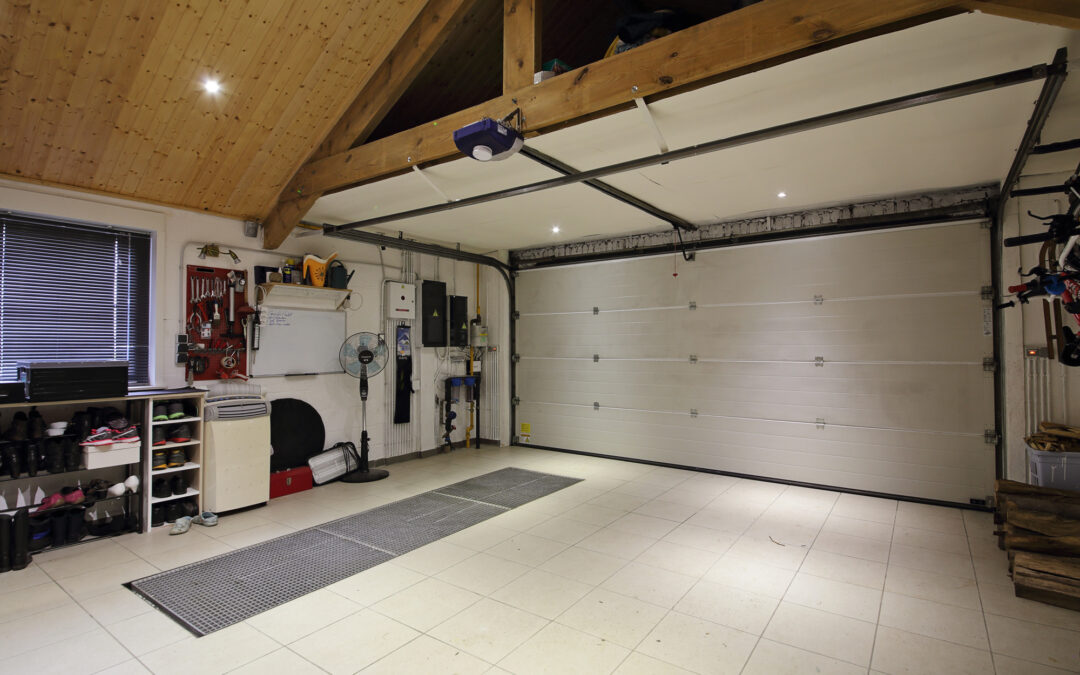Over 60 percent of homes built in 2019 had a garage, and that’s only a small percentage of the many residential garages in the country.
Garage floors are often subjected to heavy foot and vehicle traffic, as well as exposure to chemicals, oils, and other substances that can damage the surface over time. So, it’s essential to protect your garage floor with the right kind of garage floor treatment.
Let’s go through some of the different types of garage floor protection.
Epoxy Coatings
Epoxy is a popular coating for garage floors. It’s a two-part system that combines a resin and a hardener.
Epoxy coatings are durable, resistant to chemicals, stains, and scratches, and can give your garage floor a shiny, finished look. This garage floor treatment is available in a wide range of colors and styles.
Epoxy coatings are easy to clean and maintain, but they do require some regular upkeep. Avoid using harsh chemicals or abrasive cleaners, as these can damage the coating. Regular sweeping and mopping should be sufficient to keep the floor clean.
Polyurea Floor Coating
Polyurea is a high-performance coating that provides superior protection against abrasions, chemicals, and UV rays.
Polyurea is known for its extreme durability and can withstand heavy foot and vehicle traffic without chipping or peeling. Polyurea is highly resistant to chemicals, making it a great choice for garages where spills and leaks are common.
This garage floor coating can be applied quickly, with a fast curing time, allowing you to use your garage floor sooner. This is particularly helpful for people who are always on the go and don’t have time for the inconvenience of waiting around.
Polyurea can be customized to match your style preferences, so it’s great if you’re planning a garage remodel.
There are some cons to this type of floor coating, however. Polyurea floor coating can be more expensive than other coating options. It also definitely needs to be installed by a professional, which can make it even more expensive.
Interlocking Tiles
Interlocking tiles can be made from a variety of materials, including PVC, rubber, and polypropylene. PVC tiles are lightweight and easy to install. But they may not be as durable as rubber or polypropylene tiles.
Rubber tiles are more durable and resistant to chemicals, but they can be heavy and more difficult to install. Polypropylene tiles are a good balance between durability and ease of installation.
Interlocking tiles come in various designs and interlocking systems. Some designs feature a snap-together system that makes installation quick and easy, while others may require a mallet or other tool to secure the tiles together.
The thickness of the tiles can vary. Thicker tiles will generally be more durable and resistant to damage from heavy equipment or vehicles. You can choose interlocking tile designs that matches your garage décor.
Interlocking tiles are easy to maintain, with regular sweeping and occasional mopping sufficient to keep them clean. Some tiles may be resistant to oil or other chemicals, but others may require special care to prevent staining or discoloration.
Concrete Stains
Concrete stains can provide an effective garage floor protection solution, as they can help to enhance the durability and resistance of the concrete surface.
Staining your garage floor can add color and texture. It can also serve as a protective layer that helps to prevent damage from oil spills, moisture, and other hazards.
There are two main types of concrete stains: acid-based stains and water-based stains. Acid-based stains penetrate deep into the concrete surface and create a chemical reaction that causes a unique color and pattern.
Water-based stains, on the other hand, do not react chemically with the concrete, but rather they penetrate the surface to provide a semi-transparent color that enhances the natural appearance of the concrete.
Both types of stains can help to protect your garage floor by adding an extra layer of protection against moisture, stains, and other elements. However, it’s important to note that staining your garage floor is not a substitute for proper cleaning and maintenance.
You should still sweep and mop your garage floor regularly and take steps to clean up spills and stains as soon as they occur to avoid long-term damage.
Sealers
Sealers are applied to the garage floor to protect it from stains, water damage, and other types of wear and tear. They are available in both water-based and solvent-based formulations. Sealers can also improve the appearance of your garage floor by providing a glossy or matte finish.
Mats and Rugs
Mats and rugs are a simple way to protect your garage floor from dirt, mud, and other debris. They are available in various materials, such as rubber, PVC, and carpet, and they can be easily cleaned or replaced.
There are some big downsides to just using mats and rugs, however. They can be slippery, especially when wet. Make sure to look for products with non-slip backing to reduce the risk of falls.
They can also end up trapped under your vehicle or dragged, defeating the purpose. Ideally, you should use mats and rugs in concert with other forms of garage floor protection.
Understand Your Options For Garage Floor Protection Today
Overall, the type of garage floor protection you choose will depend on your budget, personal style, and how much traffic your garage floor sees. Weigh the pros and cons, and figure out what’s right for your home.
Are you ready to invest in garage floor protection? Contact a Garage Force location in your area ASAP.

